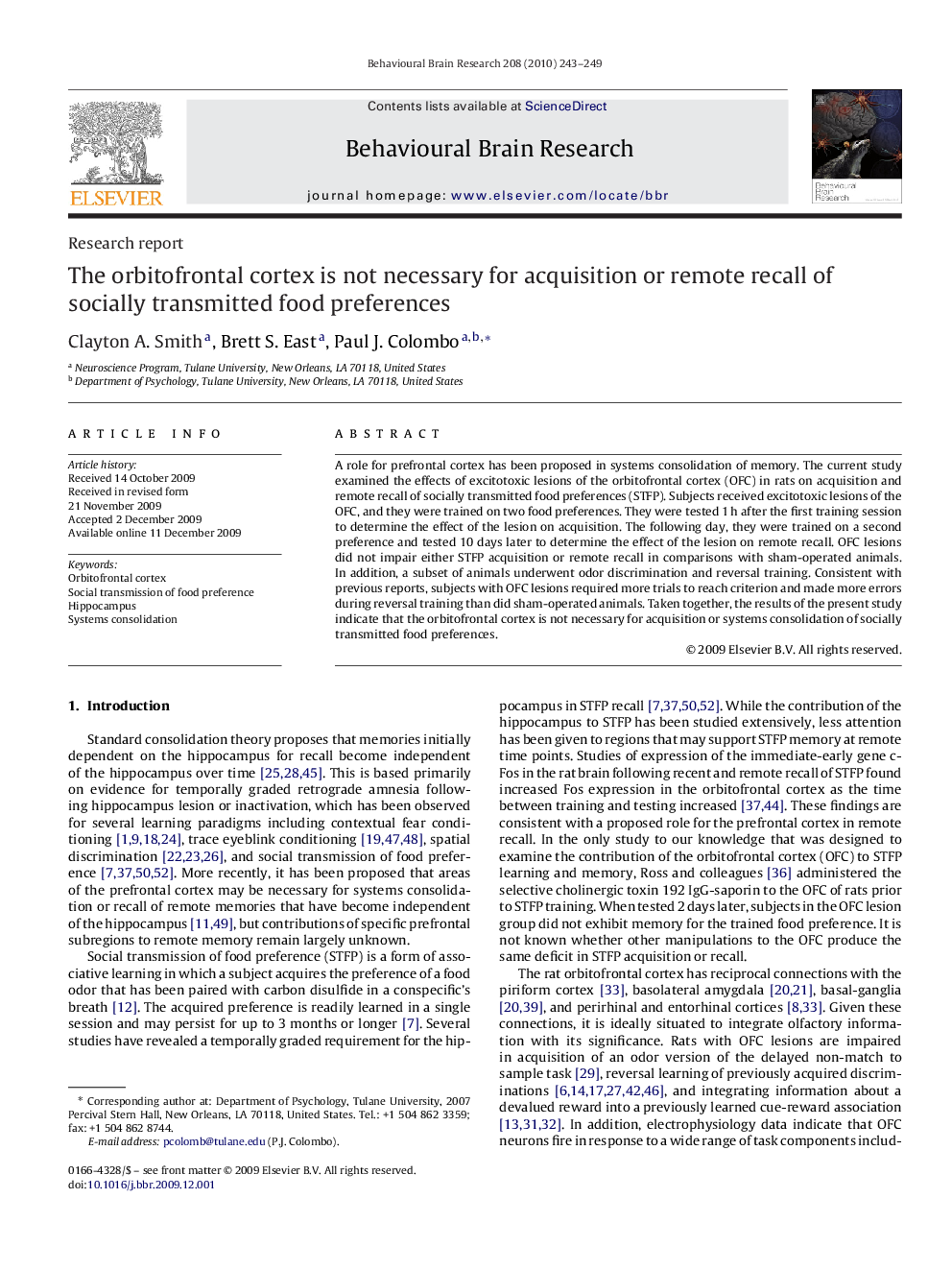| Article ID | Journal | Published Year | Pages | File Type |
|---|---|---|---|---|
| 4314303 | Behavioural Brain Research | 2010 | 7 Pages |
Abstract
A role for prefrontal cortex has been proposed in systems consolidation of memory. The current study examined the effects of excitotoxic lesions of the orbitofrontal cortex (OFC) in rats on acquisition and remote recall of socially transmitted food preferences (STFP). Subjects received excitotoxic lesions of the OFC, and they were trained on two food preferences. They were tested 1Â h after the first training session to determine the effect of the lesion on acquisition. The following day, they were trained on a second preference and tested 10 days later to determine the effect of the lesion on remote recall. OFC lesions did not impair either STFP acquisition or remote recall in comparisons with sham-operated animals. In addition, a subset of animals underwent odor discrimination and reversal training. Consistent with previous reports, subjects with OFC lesions required more trials to reach criterion and made more errors during reversal training than did sham-operated animals. Taken together, the results of the present study indicate that the orbitofrontal cortex is not necessary for acquisition or systems consolidation of socially transmitted food preferences.
Related Topics
Life Sciences
Neuroscience
Behavioral Neuroscience
Authors
Clayton A. Smith, Brett S. East, Paul J. Colombo,
